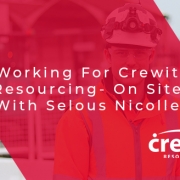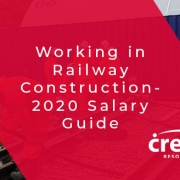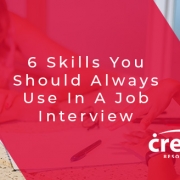Working For Crewit Resourcing- On Site With Selous Nicolle
When you think of part-time work during University, you probably picture bartending, retail or handing out leaflets for the student nightclub!
Student Selous Nicolle is different, choosing to spend his working time on the railway.
Students working as a labourer in rail construction could potentially earn 2x more than the national minimum wage.
He studies property development at Oxford Brookes University. Working in rail construction ties in nicely his interest in construction and after he graduates, is looking to develop a career in the industry. We caught up with Selous to ask him about his experience in balancing both worlds.

What were you doing before you found Crewit Resourcing?
Before starting at Crewit Resourcing I was at school, unsure of what I wanted to progress into following my studies.
How did you come across us?
I came across Crewit Resourcing through one of the employees working there; Grant Oliver who is a fellow South African, and he mentioned how he supported himself whilst at university through working on the rail. Following from his lead I started looking at options for doing the same and got my PTS which allowed me to start on the rail thanks to Crewit Resourcing being my sponsor.
What made you choose us?
I chose Crewit Resourcing as they created the opportunity for me and supported me through my progression and training on the rail.
What was your role when you began your journey?
I first started working as a labourer but worked my way up picking up new skills along the ways, such as small tools and electrical track maintenance. This allowed me to take on more challenging jobs on the railway, and has led me to work with a range of companies with Crewit Resourcing and opened up my options in the Construction industry.
How have we exceeded your expectations while working with us?
Crewit Resourcing has far exceeded my expectations in terms of training and growth in the industry. It has also instilled in me a hard work ethic and has developed my skills through teamwork and good leadership. The fellow workers have been fantastic in passing on skills and teaching me a range of new knowledge and overall have helped me to pursue my interest in construction and development.
Would you recommend us to other university students looking for work?
I would recommend, and have already recommended Crewit Resourcing to university students looking for work, a few of which are particularly interested in starting on the rail. It is a fantastic opportunity for students as most of the work is over holiday periods and weekends and can give you invaluable experience in the construction industry for when they come out of university. As well as developing a range of skills applicable to further careers.
I enjoy working for Crewit Resourcing and hope to continue my progression on the railway and construction industry.
If you're a university student looking to work in rail, quick register with us and we'll be in touch.






